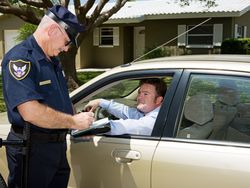What to Know About Driving Under the Influence of Drugs & Alcohol

Driving under the influence of drugs or alcohol is considered unsafe because it can harm others. In New York, about 20% of vehicle-related fatalities are attributed to driving while impaired or intoxicated. Because of these sobering statistics, violators of the law face stiff repercussions. Below is some additional information on the matter.
What Substances Cause Driving Violations in New York?
Under the law, drugs are classified as controlled substances under different schedules. These include opiates, depressants, stimulants, hallucinogens, narcotics, and other medications that may lead to abuse. These drugs impact your reflexes, alertness, judgment, and vision, which are essential when you’re behind the wheel.
Combining them with alcohol further magnifies their side effects, resulting in reckless driving. An intoxicated person has fewer inhibitions and takes bolder, more aggressive actions that can harm other motorists and pedestrians.
What Are the Penalties for Drug-Related Violations?
 A chemical test determines the presence of drugs and alcohol in your body, which can lead to a charge. If you refuse the test, police testimony and your behavior and appearance upon arrest can indicate you are impaired.
A chemical test determines the presence of drugs and alcohol in your body, which can lead to a charge. If you refuse the test, police testimony and your behavior and appearance upon arrest can indicate you are impaired.
If you’re charged with driving under the influence of drugs, you face two possible offenses: DWAI-drug or DWAI-combination. The former pertains to driving while impaired by a drug, while the latter means you were under the influence of both drugs and alcohol. Penalties apply to all motorists who’ve taken controlled substances, even with valid prescriptions.
A first-time conviction for DWAI-drug or DWAI combination is usually ruled a misdemeanor. You face maximum jail time of one year, penalties from $500 to $1,000, and license revocation for six months.
If a second conviction of the same offense happens within ten years, it’s tagged as class E felony. It carries a prison sentence of one to four years and fines ranging from $1,000 to $5,000. Your license is revoked for a minimum of one year.
Additional convictions within ten years are class D felonies, which result in longer jail time, higher penalties, and possible permanent revocation of your driver’s license. Keep in mind that defendants of drug-related violations are not entitled to conditional licenses, which allow limited driving privileges.
If you’re charged with driving under the influence, reach out to the attorneys at Fiandach & Fiandach in Rochester, NY. Backed by over four decades of experience, they’ve provided top-notch legal counsel and representation to countless clients involved in DUI cases. Ed Fiandach teaches cutting-edge techniques to current attorneys and students at Harvard Law School. Call (585) 244-8910 to set an initial consultation or learn more about their work on their website.
About the Business
Have a question? Ask the experts!
Send your question

